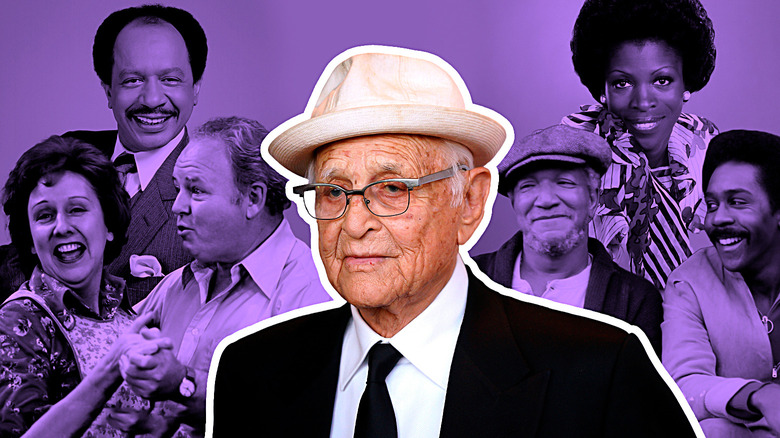The Legacy of Norman Lear: A Look Back at His Iconic TV Shows

Introduction
Norman Lear is a name synonymous with groundbreaking television. Over the decades, his work has transformed the landscape of TV, introducing audiences to shows that are not only entertaining but also deeply thought-provoking. Lear's career in television is marked by his ability to blend humor with social commentary, creating shows that have left an indelible mark on the industry. His contributions have not only shaped the way stories are told on TV but also influenced how audiences engage with social issues. This article delves into the legacy of Norman Lear, exploring his iconic TV shows and their profound impact on American culture.
Quick Info Table
| Aspect | Details |
|---|---|
| Notable Shows | All in the Family, The Jeffersons, Maude, Good Times |
| Career Span | Over six decades |
| Key Themes | Social issues, family dynamics, race relations, humor |
| Awards and Recognition | Multiple Emmys, Peabody Awards, and induction into the Television Academy Hall of Fame |
Early Career and Success
Norman Lear's journey in television began in the early 1950s when he started writing for variety shows. His knack for comedy and storytelling quickly became evident, and he soon moved on to writing and producing sitcoms. One of his early successes was the creation of All in the Family, a show that would redefine television comedy. Lear's signature style—characterized by sharp wit and a fearless approach to tackling controversial topics—began to take shape during this period. His ability to weave humor into serious discussions about societal issues set him apart from his peers and laid the groundwork for his future successes.
All in the Family: A Game-Changer in Television
When All in the Family premiered in 1971, it was unlike anything audiences had seen before. The show centered around Archie Bunker, a blue-collar worker with outspoken views on race, politics, and the changing social landscape. Through Archie and his family, Lear presented a candid look at American society, tackling topics such as racism, sexism, and generational conflicts with both humor and honesty. The groundbreaking nature of the show lay in its ability to spark conversations about these issues in living rooms across the country. It wasn't just a television show; it was a cultural phenomenon that challenged viewers to reflect on their own beliefs and biases.
The Jeffersons and Other Memorable Shows
Following the success of All in the Family, Norman Lear continued to create shows that pushed the boundaries of television. The Jeffersons, a spin-off from All in the Family, was another hit that focused on an African American family who "moved on up" to a better life in a Manhattan apartment. The show addressed themes of race, class, and the pursuit of the American Dream, all while maintaining a comedic touch. Similarly, shows like Maude and Good Times explored issues such as women's rights, economic struggles, and family dynamics, cementing Lear's reputation as a creator who wasn't afraid to tackle difficult subjects.
Norman Lear's Influence on Modern Television
Norman Lear's influence on television extends far beyond the shows he created. His approach to storytelling—mixing humor with social commentary—has inspired countless writers and producers. Modern sitcoms that address contemporary issues owe a debt to Lear's pioneering work. By tackling taboo topics head-on, Lear paved the way for shows like The Simpsons, South Park, and Black-ish, which continue to use comedy as a lens to examine societal issues. His legacy is evident in the willingness of today's television to address complex subjects with nuance and humor.
Norman Lear's Social Commentary
A defining feature of Norman Lear's TV shows is their incisive social commentary. His work often addressed issues that were either ignored or glossed over by other shows. Whether it was race, gender equality, or economic disparity, Lear's shows brought these topics to the forefront of public discourse. For instance, Maude tackled the issue of abortion in a groundbreaking episode that aired before the Roe v. Wade decision. By highlighting these issues, Lear's shows not only entertained but also educated and provoked thought, encouraging viewers to engage with the world around them more critically.
The Humor of Norman Lear
Despite the serious themes often present in his work, Norman Lear's shows are renowned for their humor. His ability to balance comedy with social commentary is a testament to his skill as a writer and producer. The humor in Lear's shows is timeless, resonating with audiences even decades after they first aired. Characters like Archie Bunker and George Jefferson became iconic not just for their comedic value but for the way they reflected and challenged societal norms. Lear's humor was never just for laughs; it was a tool to shine a light on the absurdities and contradictions within society.
Changing Times and Attitudes
Norman Lear's TV shows were a reflection of their times, capturing the changing attitudes and societal shifts of the 1970s and 1980s. As America grappled with issues such as civil rights, gender equality, and economic challenges, Lear's work provided a mirror to these changes. His shows often pushed the boundaries of what was considered acceptable on television, challenging censorship and sparking debates. By addressing these issues head-on, Lear's work contributed to a broader cultural conversation, helping to shift public attitudes and promote greater understanding and acceptance.
Conclusion
The legacy of Norman Lear is one of innovation, courage, and profound impact on both television and American culture. His shows not only entertained but also challenged audiences to think critically about the world around them. By blending humor with social commentary, Lear created a unique space in television that continues to influence and inspire. As we look back at his iconic TV shows, it's clear that Lear's work transcends entertainment; it is a testament to the power of television as a medium for change. His contributions have left an enduring mark, reminding us of the potential for storytelling to shape and reflect society.